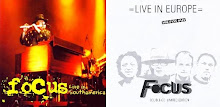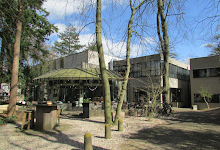Archive number: 38
Title: Ship of Memories
Main Album: Ship of Memories
Track number: 9
Genre: Instrumental
Studio: Chipping Norton Recording Studio, 26-32 New Street, Chipping Norton, Oxon, OX7 5LJ
Length: 1' 42”
Composer: Pierre van derLinden
Musicians: Pierre van der Linden – Drums, Harmonium
Producer: Mike Vernon
Engineer: Barry Hammond and David Grinsted
Label: LP – EMI, Harvest, Sire CD – EMI-Bovema, IRS, Red Bullet, JVC
Date of recording/release: Final weeks of May 1973. Not released until 1977 (LP). CD – 1988,1993, 2001, 2006.
Notes: Again quite atmospheric this track, the last of the Chipping Norton remnants, would originally have begun with a lengthy drum break, perhaps something like The Lost Past on the self-titled album by Trace. We break in at the point where there is a loud crash on the drums and a drum roll ending with cymbals and leading (00:19) into the main part played on harmonium (an instrument also used briefly on Hocus Pocus). The cymbals carry on until 00:45 when sound effects of wind then seagulls begin. The harmonium slowly fades until only the sound of the wind remains. As what was expected to be the last published track from a great band it is a good choice.
A note on the harmonium (from Wikipedia)
A harmonium is a free-standing musical keyboard instrument similar to a reed organ or pipe organ. It consists of free reeds and sound is produced by air being blown through reeds resulting in a sound similar to that of an accordion. The air is supplied by foot-operated (or, as with the type of harmonium used in Indian music, hand-operated) bellows alternately depressed by the player. The harmonium was invented in Paris in 1842 by Alexandre Debain, though there was concurrent development of similar instruments. Christian Gottlieb Kratzenstein (1723-1795), Professor of Physiology at Copenhagen, was credited with the first free reed to be made in the western world after winning the annual prize in 1780 from the Imperial Academy of St Petersburg. Harmoniums reached the height of their popularity in the West in the late 19th and early 20th Centuries. They were especially popular in small churches where a pipe organ would be too large or too expensive. Dvorak, Franck, Schoenberg and Rossini are among classical composers who have written for the instrument. The Beatles and others have also made use of it.





















No comments:
Post a Comment